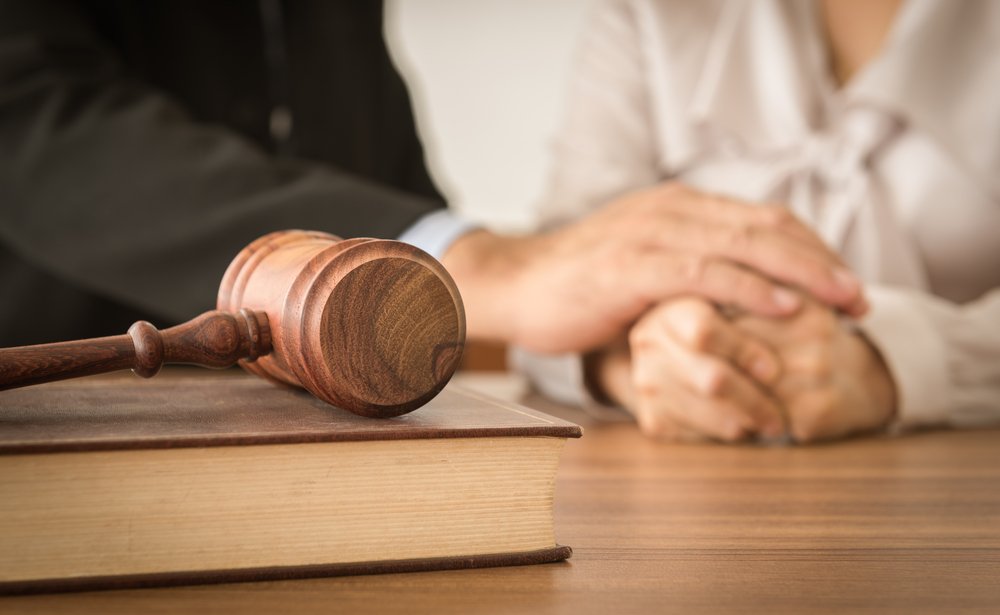Having an active warrant in California can lead to arrest and affect background checks. To remove or clear the warrant, you or your lawyer should voluntarily appear before the judge and request that it be recalled.
The three main types of warrants in the California criminal justice system include a
You should consult with an experienced criminal defense attorney for help in resolving or quieting any active warrant-related issues.
A California bench warrant is a type of warrant used to arrest and detain you if you failed to appear in court or failed to obey a court order. You can usually clear or “quash” a bench warrant by either:
- appearing in court, or
- possibly having your attorney appear in court on your behalf.
Arrest warrants in California authorize law enforcement officers to arrest and detain you if they suspect you of committing a crime outside of an officer’s presence. Depending on the facts of the case, a skilled defense lawyer can work to:
- prevent a judge from issuing an arrest warrant, or
- if a warrant has already been issued, help you avoid serving any county jail time or prison time.
A California search warrant authorizes police officers to search you, your residence, your vehicle, your place of business, or any other specified area suspected of containing evidence of illegal activity. Criminal defense lawyers can attempt to clear search warrants by filing certain motions with the court (for example, a Franks motion).
Our California criminal defense attorneys will highlight the following in this article:
- 1. How can I clear a bench warrant?
- 2. What about an arrest warrant?
- 3. Can a defense lawyer help remove a search warrant?
- 4. What is the role of a criminal defense attorney?
- Additional resources

Successfully quashing a bench warrant means that court personnel will remove it from California’s judicial system.
1. How can I clear a bench warrant?
Clearing a bench warrant is also referred to as “recalling” or “quashing” it. Successfully quashing a bench warrant means that court personnel will remove it from California’s judicial system. 1
You must appear in court in order to recall a warrant. You can have your attorney appear in court on your behalf, provided that:
- you failed to appear for a court appearance, or
- you failed to make a payment in connection with a misdemeanor offense.
If, though, you failed to obey a court order that arose out of a felony case, you must make a personal court appearance (with or without an attorney) in order to clear the warrant.
If you do not clear a bench warrant, law enforcement officers can arrest you and bring you to court. Once brought to court, the judge can either:
- release you with a warning, or
- place you in custody.2
2. What about an arrest warrant?
If a judge has not yet issued a warrant for your arrest, an attorney can work to gather evidence of your innocence as to:
- a potential criminal case, or
- possible criminal charges.
A lawyer can use this evidence to show that there is no probable cause that you committed a crime. Note that a judge cannot issue an arrest warrant in the absence of a prosecutor showing probable cause of a criminal offense.3
If there is already an outstanding warrant for your arrest, a lawyer can try to help keep you from remaining in police custody (upon a lawful arrest). For example, an attorney can accompany you to court and request that a judge release you either:
- on bail, or
- on your own recognizance.

If an attorney succeeds in proving that the affidavit contained false material information, the judge may quash or void the search warrant.
3. Can a defense lawyer help remove a search warrant?
Criminal defense attorneys can help you challenge a search warrant by filing a motion to “quash and traverse” the warrant. The motion essentially questions the affidavit that served as the basis for the issuance of the search warrant.4
An example of a motion to quash is a Franks motion. Lawyers can request a Franks hearing if they believe that the affidavit which accompanied a search warrant was based on false information.5
If an attorney succeeds in proving that the affidavit contained false material information, the judge may quash or void the search warrant. Once the search warrant is quashed, any evidence that was seized under the warrant will be suppressed.6
Note that even if a lawyer cannot clear a search warrant, the attorney can try and suppress any evidence that authorities may have obtained from the warrant. Lawyers typically do this by filing a California Penal Code 1538.5 PC motion to suppress evidence.
An attorney may file this motion based upon any of the following facts:
- the California search warrant was invalid on its face,
- there was no probable cause to issue the search warrant,
- the seized property or other evidence was not specifically described in the search warrant, and/or
- the execution of the search warrant was illegal.7
4. What is the role of a criminal defense attorney?
In the State of California, defense lawyers play an invaluable role in helping you clear and remove criminal warrants.
For example, attorneys can research to find whether you are even subject to a warrant. If an outstanding warrant is in existence, a lawyer can identify which type of warrant it is.
Once this is accomplished, the attorney can develop the best legal strategy to challenge the warrant.
A challenge usually requires accompanying you into court. If a lawyer does appear before a judge, they can help you avoid any possible jail or state prison time.
More importantly, the attorney can take those steps that are necessary to quash the warrant. These steps may or may not involve the lawyer filing a particular motion with the court.
Additional resources
For more in-depth information, refer to these scholarly articles:
- Search Warrants in the Digital Age – Hofstra Law Review.
- Living with Warrants: Life Under the Sword of Damocles – CrimRxiv.
- Discretionary Bench Warrants – The Criminal Law Quarterly.
- Discovering Arrest Warrants: Intervening Police Conduct and Foreseeability – Yale Law Journal.
- Deportation Arrest Warrants – Stanford Law Review.
Legal References:
- Note that a judge typically issues a bench warrant if a party is in “contempt of court,” meaning a person failed to appear for a court date, pay a fine, and/or obey any other court order (for example, in a domestic violence case). See California Penal Code Section 166 PC for contempt of court rules.
- See California Penal Code Sections 978.5-981 PC.
- California Penal Code 817 PC. See also People v. Kasrawi (Cal.App. 2021) .
- Note that a judge will typically only sign or grant a search warrant if the warrant is accompanied by an affidavit that shows that there is probable cause that the person subject to the warrant was or is engaged in criminal activity. See California Penal Code 1525 PC. See also People v. Mesa (Cal.App. 2023) .
- See Franks v. Delaware (1978) 438 U.S. 154.
- See same.
- California Penal Code 1538.5 PC.
